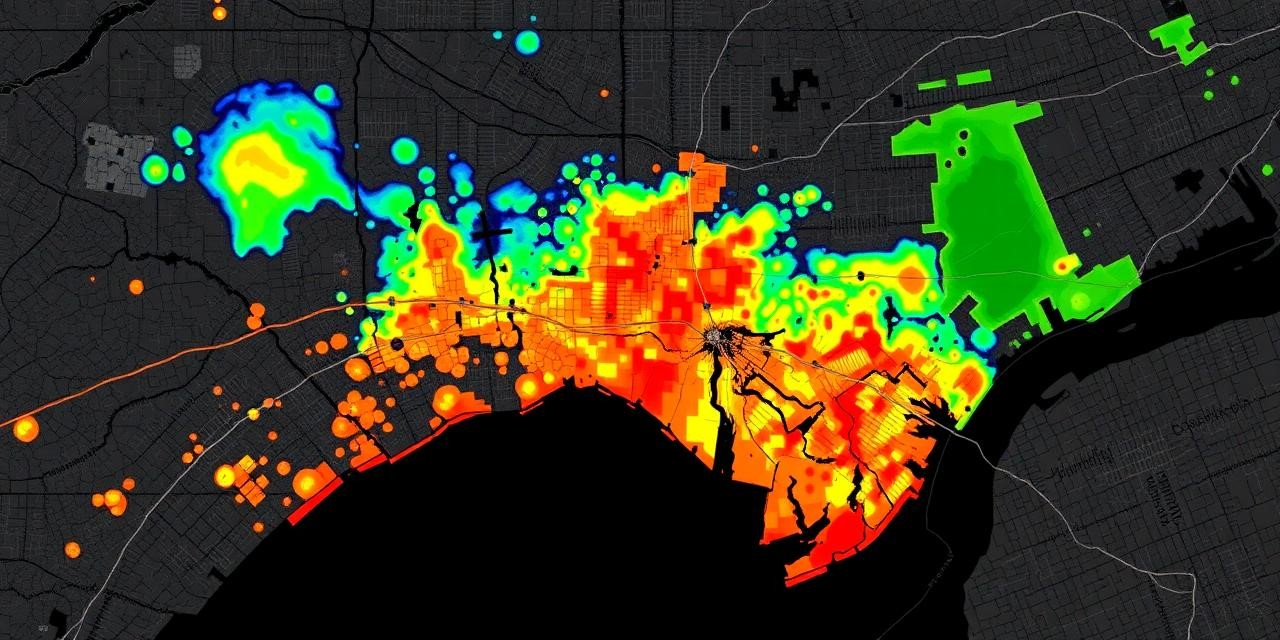Remember last month? Richmond baked. 105 degrees! A new record. It wasn’t just uncomfortable; it was a wake-up call. As a scientist focused on climate and our well-being, I’m deeply concerned about what this means for Virginians, especially those most vulnerable.
Climate change, fueled by burning fossil fuels, isn’t a distant threat anymore. It’s here in Virginia, and we’re feeling it. Higher temps, worse air quality, spreading diseases… it’s a complex challenge demanding urgent action.
Virginia’s Boiling Points: The Urban Heat Island Effect
Cities like Richmond are heat islands.

Concrete and asphalt trap heat, making urban areas way hotter than the countryside. We’re talking up to 20 degrees hotter on a summer day.
Picture this: You’re in a crowded Norfolk neighborhood, surrounded by heat-absorbing buildings, with no green space and no AC. That’s reality for many, and it’s putting them at serious risk.
Heatstroke on the Rise: A Public Health Emergency
The results are clear: more heatstroke, more exhaustion, more dehydration. Virginia hospitals are seeing a surge. The numbers jump around year to year, but the trend is undeniable: our healthcare system is straining.
Take Mrs. Johnson, a 78-year-old in Richmond with heart problems. During that heatwave, her apartment became an oven. No AC, no cooling center nearby. She collapsed and ended up in the hospital. Sadly, her story is all too common.
The Price of Heat: Healthcare Costs Soar
More heat-related illnesses mean a bigger bill for Virginia’s healthcare system. We’re already spending millions each year to treat these conditions, and that’s only going to increase as temperatures rise. That money could be used for other critical healthcare needs.
Unequal Impact: Climate Injustice in Our Backyard
Climate change doesn’t hit everyone the same. Low-income communities, communities of color, the elderly, and people with health problems are far more vulnerable.
This is environmental injustice, plain and simple. We need to make sure all Virginians have what they need to stay safe from climate change, no matter their background.
Gasping for Air: The Air Quality Crisis
Climate change is also messing with our air quality. Higher temperatures create more ground-level ozone, a nasty pollutant that triggers asthma, worsens breathing problems, and can even lead to premature death. And with more wildfires, we’re breathing in more particulate matter, which is terrible for our lungs.
Kids, seniors, and anyone with respiratory issues are especially at risk. During high pollution days, they may struggle to breathe and need medical help.
New Diseases on the Horizon: When Ticks and Mosquitoes Thrive
As the climate shifts, mosquitoes and ticks are spreading, bringing diseases like West Nile, Lyme disease, and Zika. Warmer weather and changing rainfall create perfect breeding grounds for these pests.
Virginia’s Climate Efforts: Are We Doing Enough?
Virginia has taken some steps, like joining the Regional Greenhouse Gas Initiative (RGGI) to cut carbon emissions. We’ve also set goals for reducing emissions and switching to clean energy. But honestly, we need to do more, faster. We need to accelerate the transition to clean energy, improve energy efficiency, and protect vulnerable communities.
Two-Pronged Attack: Mitigation and Adaptation
Dealing with the health impacts of climate change means tackling it from two sides: mitigation and adaptation. Mitigation means reducing emissions to slow down climate change. Adaptation means protecting ourselves from the changes that are already happening.
What Can We Do? Practical Steps for a Healthier Future
Here’s how we can adapt to and mitigate the health impacts of climate change:
- Plant trees and create green spaces: Shade, cooling, and carbon absorption.
- Improve energy efficiency: Use efficient appliances, insulate your home, and switch to renewable energy.
- Support clean energy policies: Advocate for policies that transition Virginia to clean energy and protect our health.
- Stay informed about heat advisories: Drink water, avoid strenuous activity, and find air-conditioned spaces.
- Support community organizations: They’re on the front lines and need our help.
Time to Act: Protecting Our Home
Climate change is a real threat to Virginians’ health. We need to act now to protect ourselves, our communities, and our future. It’s going to take all of us – individuals, communities, policymakers, and healthcare pros. Let’s build a more resilient and sustainable Virginia where everyone can thrive. Get involved in local climate initiatives and support policies that prioritize public health and environmental justice. The time to act is now.


